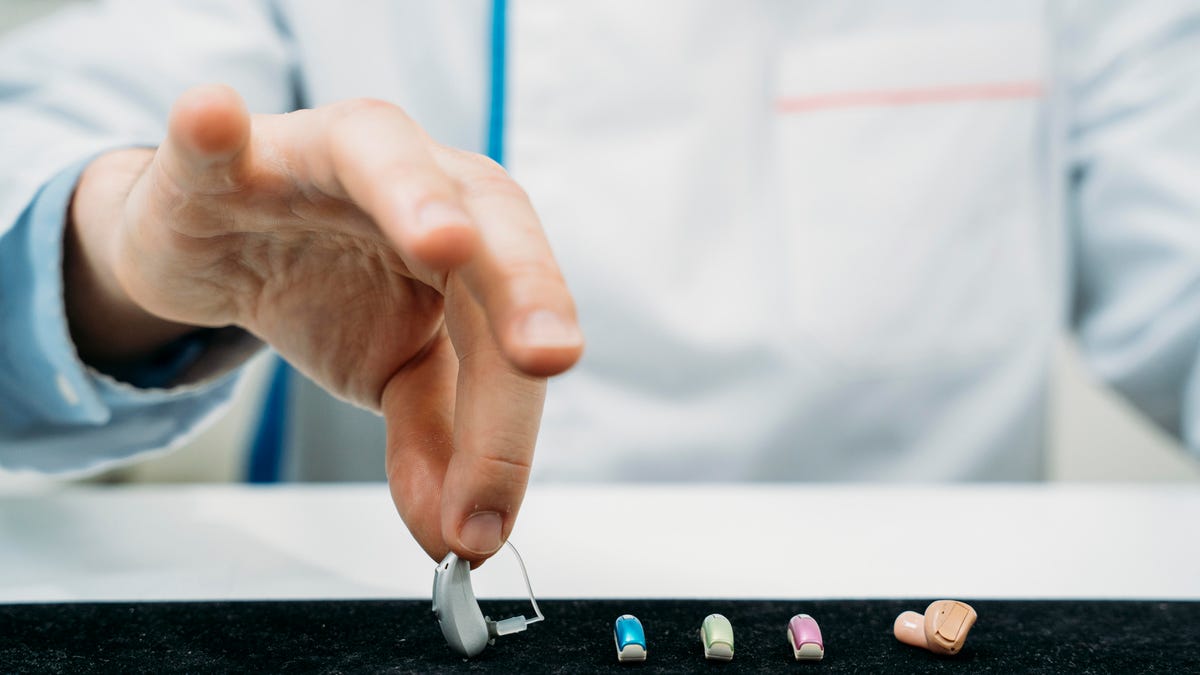 Why You Can Trust CNET
Why You Can Trust CNET Nearly a Year After Hearing Aids Became Easier to Get, Survey Suggests People Still Aren't Wearing Them
We've been singing the praises for over-the-counter hearing aids, but treating hearing loss remains an issue.

A nationwide rule allowing hearing aids to be sold over-the-counter for treatment of mild or moderate hearing loss went into effect last fall. This was a big deal because it removed the requirement to get a prescription and fitting (which requires an appointment, in-person fitting and more money) as well as the sale of cheaper devices. (A good pair of over-the-counter hearing aids will run you between $800 and $3,000, but people may still save an average of a couple thousand dollars with OTC compared with prescription devices.)
But nearly a year later, we may have yet to see a real impact from the availability of over-the-counter hearing aids, according to a survey released Tuesday by the American Speech-Language-Hearing Association, an association of audiologists, speech-language pathologists and other hearing health experts.
While more than half the adults ages 40 and up who were surveyed acknowledged their hearing isn't as good as it could be, or said they did have hearing loss, only 8% reported that they have been treated for it. The most common reason they reported for not seeking professional help for hearing loss was they didn't think it was "bad enough" to warrant treatment or a hearing aids.
Of people with hearing difficulties, just 2% said they purchased an over-the-counter hearing aid in the last six months. Just 4% said they had an intention of buying an OTC hearing aid.
The survey was conducted between late June and early July by YouGov, an online polling company, and included a sample size of 2,228 adults. It was self-reported, so no hearing tests were done. There was also no way to confirm the person purchased a real OTC device instead of a sound amplification device.
Lindsay Creed, an audiologist and associate director of audiology practices at ASHA, said that the findings were "somewhat to be expected." While many of us may have hoped people would flock to OTC devices once the price barrier was lowered and hearing loss treatment became more available, lower uptake of hearing devices suggests many people who may benefit from an over-the-counter hearing aid still have untreated hearing loss, leading them to wait longer (typically years) before receiving treatment.
Untreated hearing loss often has impacts on your overall health and ability to communicate. Recent research has shown that treating hearing loss with a hearing aid may cut dementia risk in half, for example.
"We really need to make sure the public is aware of these risk factors and that hearing is tied to so much more in terms of quality of life," Creed said.
Is my hearing 'bad enough' for a hearing aid?
The most common reason people listed for not seeking treatment or help for hearing difficulties was the belief that their hearing difficulties weren't severe enough to warrant treatment or time. But targeting people at the earlier stages of hearing loss is the goal of OTC devices -- they're only for adults with mild or moderate hearing loss -- children and people with "severe" hearing loss still need to be professionally fitted. This may speak to a need for more education about OTC devices and who they're for, according to Creed.
"The goal of over-the-counter hearing aids was to increase the accessibility and the affordability of hearing loss treatment for adults with mild or moderate hearing loss," she said. Creed notes that there does appear to be an increased understanding of the importance of seeking care from a professional, like an audiologist. Hearing health professionals including ASHA recommend you have your hearing screened and your ears checked prior to purchasing an OTC device.
Other reasons people listed for not looking into hearing treatment were not viewing hearing treatment as a "priority," fear of looking old or aging, not knowing where to go for care and cost.
"Our survey shows that most individuals are willing to pay somewhere around two hundred dollars for an over the counter hearing aid," Creed noted, which is a far cry from the price of some OTC devices on the market.
According to Creed, in addition to reducing the stigma associated with hearing aids through more representation, and a (hopeful) price drop in over-the-counter hearing aids as more companies compete in the market, expanding insurance coverage for hearing aids will be an important step toward increased access to hearing aids. This may be especially important to those with severe hearing loss, who need a prescription device. Medicare doesn't cover the cost of hearing aids, and there's lots of work outside the hearing aid market that needs to happen to improve people's hearing health.
"OTC is really just one piece of the puzzle," Creed said.
Read more about the signs you should have your hearing tested, unexpected sources of hearing damage and tips for finding the right pair of hearing aids.

